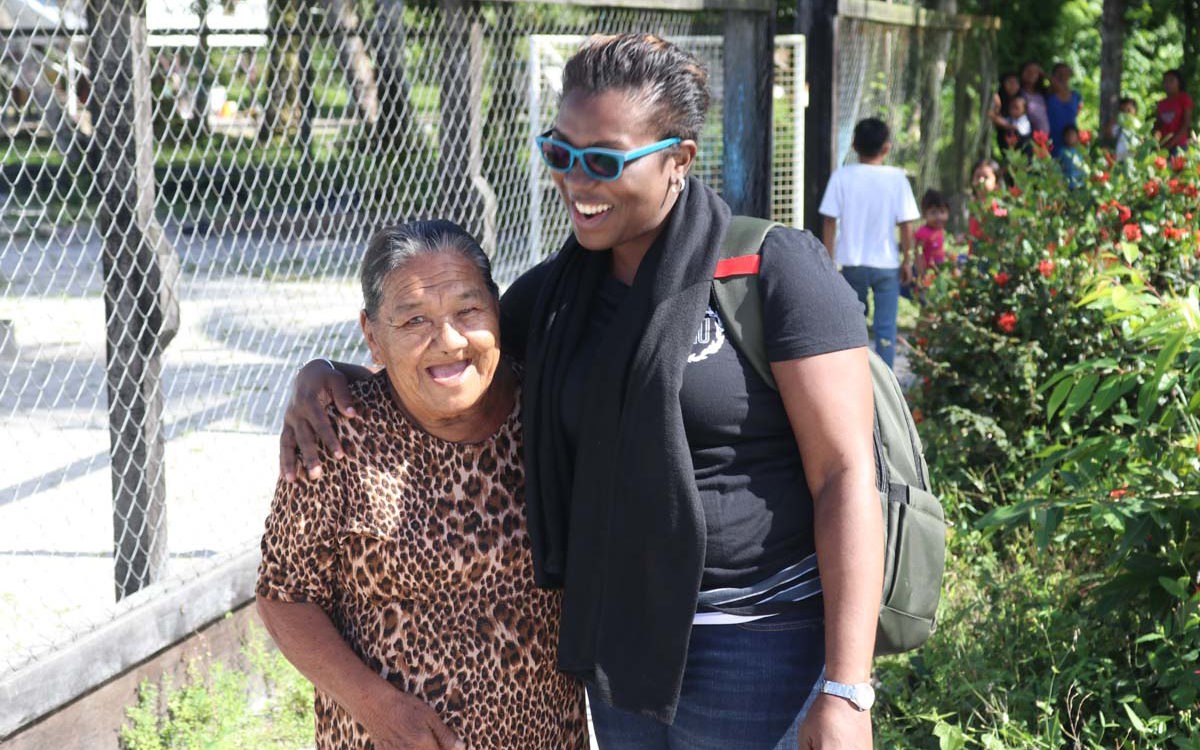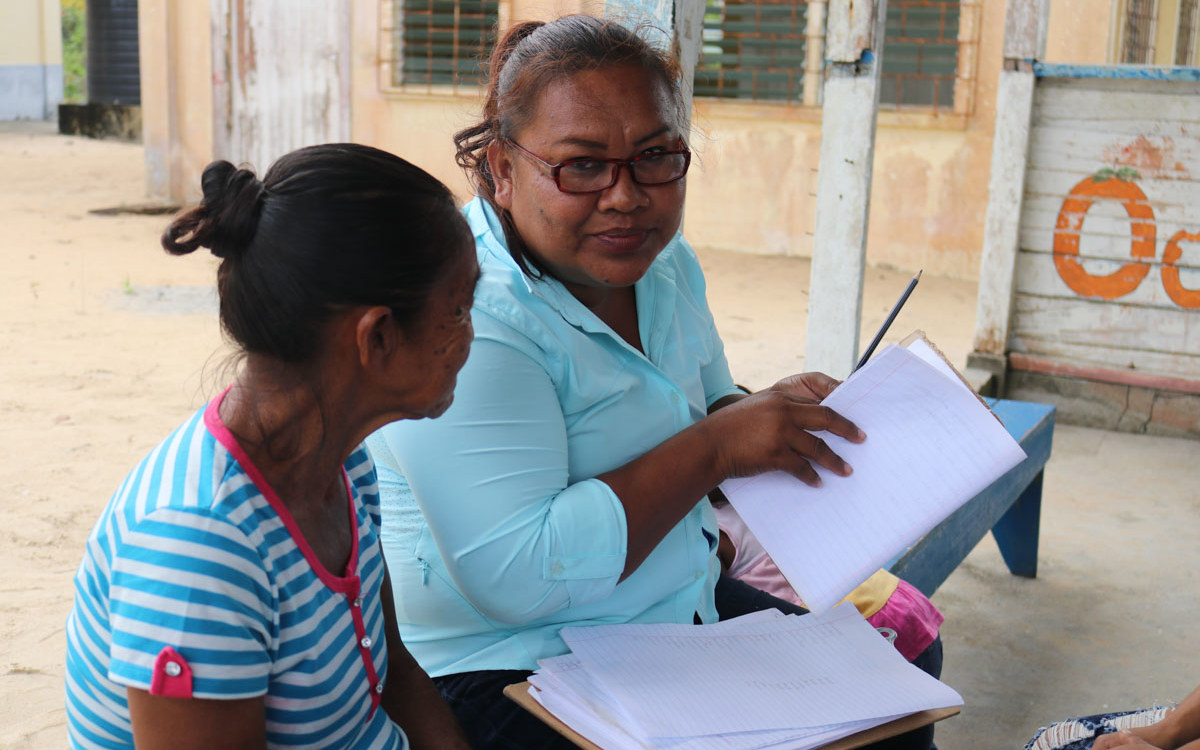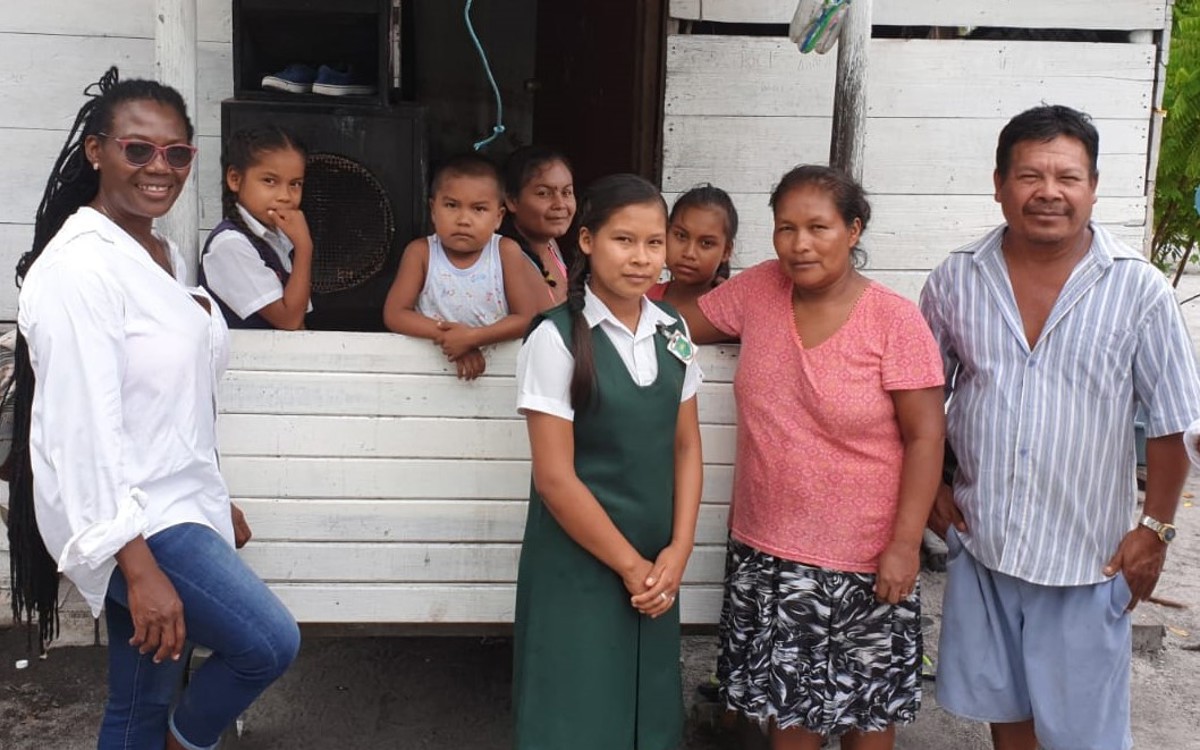A letter of love from the Garifuna language in Belize to her sister language, Lokono, in Guyana.
By Hubert Devonish, University of the West Indies, Jamaica
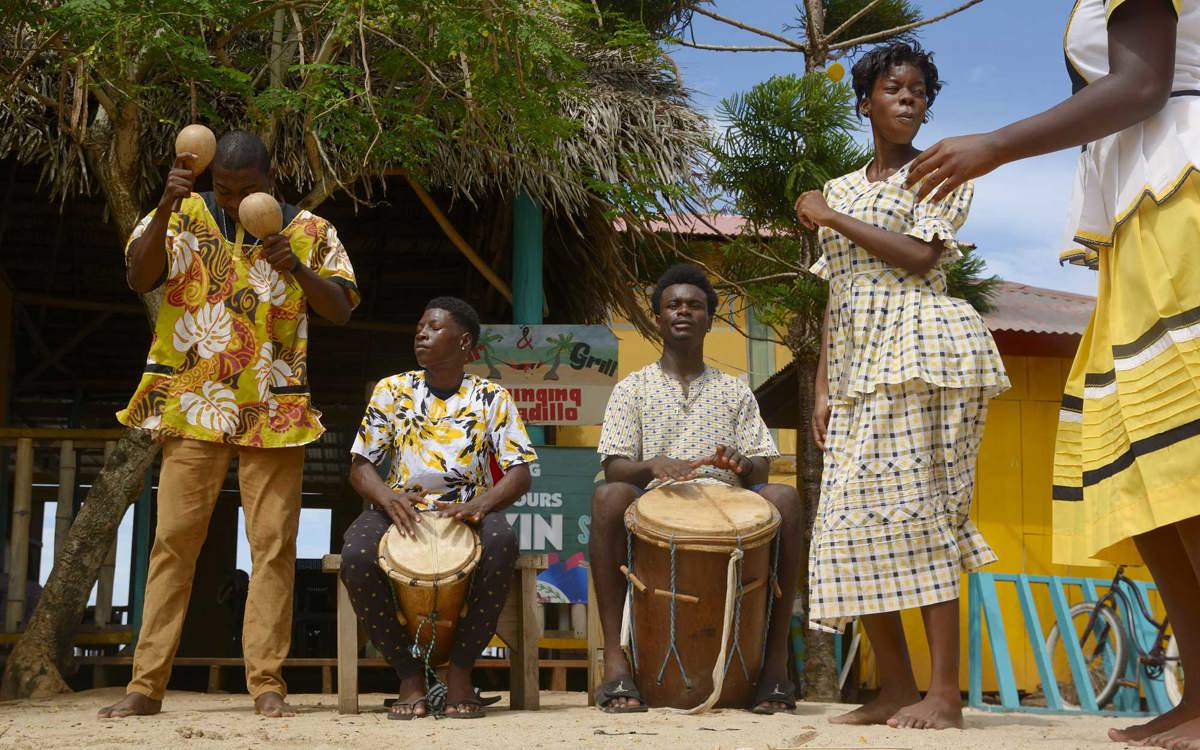
‘Let your people lift you out of your bed, put you on your feet, and have you dance to the band that has come to play. This is not your funeral but your rebirth.’
By Hubert Devonish, University of the West Indies, Jamaica
In the centuries since Christopher Columbus first washed up on the shore of a Caribbean island, indigenous populations all over the new world have been devastated by their contact with the Europeans. Among the casualties are the dozen or more indigenous languages once spoken on the islands of the Caribbean, almost all of which have fallen silent.
One surviving language is Garifuna, which belongs to the Arawakan language family – the largest indigenous language family on the South American continent. While no longer spoken in the Caribbean, Garifuna can now be heard on the mainland of Central America. There, too, live the modern-day speakers of a very similar and severely endangered Arawakan language: Lokono. This is the story of these two sister Arawakan languages and how they are facing up to the prospect of their deaths.
For those of us working with indigenous languages, it is often the case that we witness only the decline of a language over the years we study it. But in the case of Garifuna, something very unusual seems to be taking place. Fifteen years ago, the language was scarcely heard in the schoolyards and playgrounds of its rural communities. Garifuna children had little exposure to the language and even less inclination to use it. Yet today, these same school children – now young adults of the child-bearing generation – show an unexpectedly high level of competence in the language. What could possibly account for this reversal in Garifuna’s fortunes? And what might Lokono – her endangered sister tongue – learn from her story?
I contacted my Garifuna co-researcher, Enita Barrett, herself a Belizean Garifuna, to help me understand. In the letter that follows, the story of the fate of Garifuna is the one she told me. It is a letter of love written from the Garifuna language in Belize to what may be her closest living relative: Lokono in Guyana.
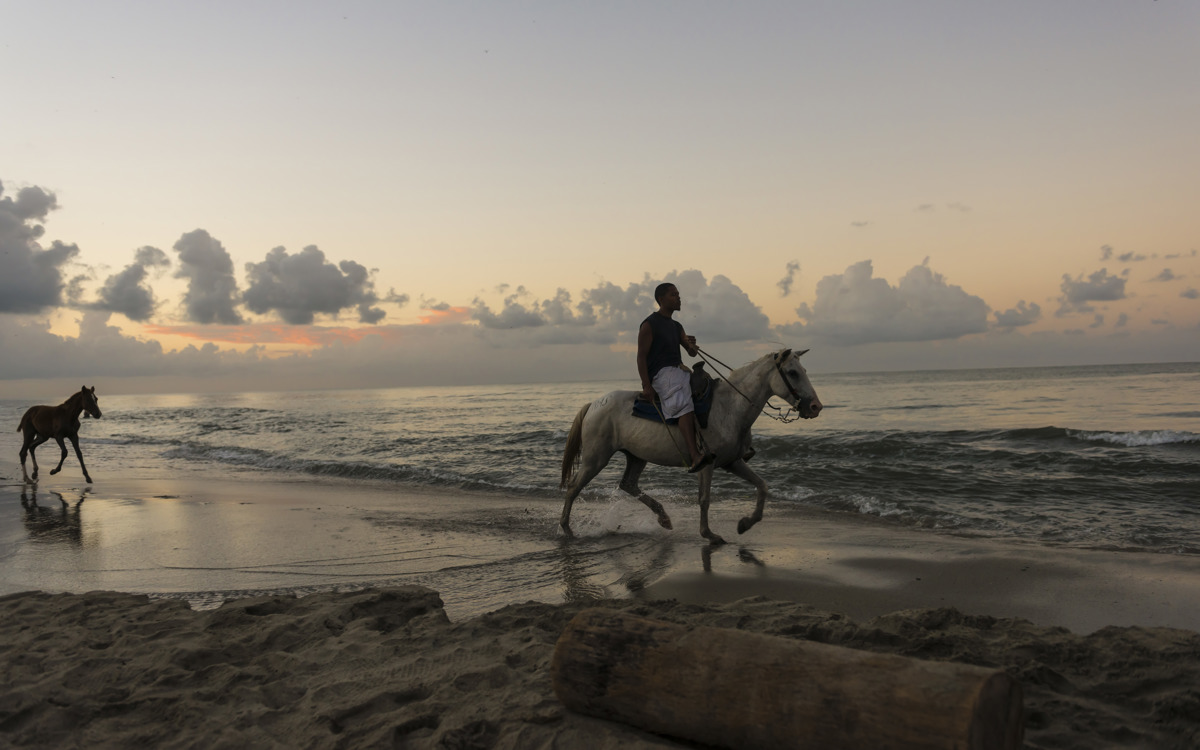
My dearest Lokono,
Garifuna niribei ‘My name is Garifuna’. Within the Arawakan language family, I am your closest living relative. Since 1797, when last we were close by, I left my homeland, the land they now call St Vincent and the Grenadines, and headed off, far away, to the Central American countries of Nicaragua, Honduras, Guatemala, and Belize.
My speakers are descendants of enslaved Africans who, as runaway survivors of a wrecked slave ship, joined and intermarried with the indigenous people of the eastern Caribbean. They were deported to Central America after a failed uprising against the British colonists. I, as the language of the deportees, travelled with them.
But this letter isn’t about me. It’s about you. It is with great sadness that I hear you are expected to die sometime soon. Please don’t give up. If it is of any comfort, let me tell you my story.
In the 1990s, everybody thought I was going to die. One of my greatest singers, Paul Nabor, sang Náguya Nei – ‘I am going’. I sang through him, saying that I was sick and in bed; when I died, I wanted a band to be there at my funeral, to celebrate my life with a party. But I had a big worry: what would happen to all the children and grandchildren and great-grandchildren whose mother language I would no longer be? How would they know how to process the poisonous bitter cassava to make nutritious food? How to make boats that are best for the waters through which we travel? How to catch fish without damaging fish stocks and use the plants and trees for medicine? But most of all, how will they speak to the ancestors and hear their stories? How will they know who they are?
Balabada naru tura nigabana nei – ‘I tossed and turned in my bed’ – with the same sickness that you are suffering from, and from worry. In the 1990s, hardly any children were learning me as their mother tongue and as their mothers’ language. Parents found it easier or more socially acceptable to speak other languages at home – Belizean Creole, English or Spanish. Many people gave up on me.
Then came Andy Palacio, the Garifuna cultural activist and musician. And after that, crazy and unpredictable things started happening. Punta rock, a musical form blending traditional Garifuna punta with modern electronic instruments and popular music forms, took off. It was all the rage. Suddenly, all the Garifuna were singing and dancing to music in the Garifuna language. Palacio, though not the inventor of the form, was determined to use it to promote the use of the language. He wrote music, performed, and took the music and culture beyond Belize and on to the global world music market, where it came to be accepted and recognised.
The young people at home were hooked. The fame and acclaim told them that their language was valuable. They should learn it. Then, to make sure the young were totally rooted in their language and traditions, Palacio changed direction. In 2007, then in his 40s, he brought Garifuna singer Paul Nabor together with a group of traditional, largely unknown, or forgotten performers of Garifuna’s traditional paranda music. They produced an album, Wátina, which took the world music scene by storm. The fame and status the language and its music got on the world stage echoed back in Belize, inspiring even further the young generation. It was now hip to learn and to speak the language.
Suddenly, in January 2008, Andy Palacio died. But instead of stopping the language movement, his death pushed it forward. Everyone wanted to revive Garifuna, to speak it for Andy. And, my dear sister, here I am today, somewhat shaky, but on my feet.
As for you, Lokono, I hope you will be reborn with a writing system, music played with electronic instruments, broadcasting on radio and television, and most of all on the internet. I hope there will be spellcheckers for your writing system, voice recognition, and translation from other languages like English and Creolese. This is the only chance you have to survive and to live. I beg you to grab at this chance. Don’t leave me alone.
It’s going to be a different life, bumping into other languages all the time, fighting for space and use, with people switching into and out of you at a shift of topic or person being spoken to. It’s a weird new life, nothing like it was before, but it’s the only way we can preserve, for the generations to come, all that knowledge we have stored up – about how to live in the spaces and places nature gave us, in South America, in Central America, and in the Caribbean. We really do have to stay around for them, our children.
And I have a message from Joan Thomas, Aunty Joan. In 2018, in her 80s and in spite of being ill, she travelled all over the Wakapoa community in Guyana to kickstart the Lokono revival project. Later, she would travel the long distance to Georgetown, to promote you, Lokono; her mother language. She says to let you know she died with the fierce energy to make you live again.
She says to tell you to let your people lift you out of your bed, put you on your feet, and have you dance to the band that has come to play. This is not your funeral but your rebirth. Invite the children and the grandchildren and great-grandchildren to come and dance with you, to celebrate your revival in the land of living, vibrant languages. My dear sister, Lokono, I look forward to hearing you and hearing from you, in the mouths of Lokono babes and sucklings, for generations to come.
With love,
Garifuna
Hubert Devonish is Professor of Linguistics at the University of the West Indies at Mona, Jamaica, and coordinates the Jamaican Language Unit and the Unit for Caribbean Language Research.
Images (from top): Garifuna performers in Belize by Roijoy at iStock; Garifuna rider by helovi at iStock
Joan Thomas, mentioned in the letter above, was a Lokono community language activist who worked with the University of Guyana’s Guyanese Languages Unit to promote recognition of Lokono nationally.
